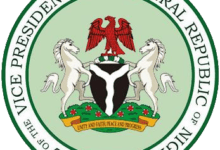
10 Factors Affecting Leadership in Nigeria
Factors Affecting Leadership in Nigeria- Leadership in Nigeria is the process of guiding and directing and influencing individuals or groups toward the achievement of a common purpose or goal. Nigeria’s concept of leadership is closely tied to the country’s political and social- economic development. Historically, leadership in Nigeria has a mix of traditional and Western influences.200 Romantic Love Message
In many parts of the country, Traditional leaders, such as kings and chiefs still hold a significant amount of power and authority.InformationGuideNigeria
👉 Relocate to Canada Today!
Live, Study and Work in Canada. No Payment is Required! Hurry Now click here to Apply >> Immigrate to CanadaIn the political terrain, Nigeria has a presidential system of government, with the President serving as both the head of state and the head of government. Political leadership in Nigeria has been marked by a series of military coups before the return to democratic rule in 1999 which Olusegun Obasanjo become Nigeria’s first democratic president after the military regime.
Read Also: 10 Factors Affecting Labour Force
Who Is a Leader?
A leader is someone who guides, directs, and influences individuals or groups toward a common goal. A leader can be a formal or informal figure and can hold a variety of positions, such as a manager, a politician, a community organizer, or a mentor.
Qualities of a Good Leader
A leader typically possesses certain qualities and characteristics, such as:105 Good Morning Love Messages
- Vision: A leader must have the ability to see the bigger picture and set a clear direction for the group or organization to follow. Factors Affecting Leadership in Nigeria
- Communication: A leader must have the ability to effectively and clearly articulate the vision and goals to others.
- Decisiveness: He or she must possess the ability to make quick and effective decisions.
- Integrity: The leader should be able to act with honesty and ethics, and lead by example.
- Adaptability: The leader should be able to adapt to changing circumstances and be flexible in the face of uncertainty.JAMB Portal
- Inspiration: A leader must have the ability to motivate and inspire others to work progressively towards a common goal.
What is leadership?
Leadership refers to the process of directing, motivating, and influencing individuals or groups toward the achievement of a common goal. It involves the ability to inspire, motivate, and influence others to work towards an objective. Leadership is also not a one-time event or a fixed trait, it is an ongoing phenomenon that involves continuous learning, improvement, and the ability to adapt to changing circumstances and situations.
Read Also: 10 Factors Affecting Migration in Nigeria
Styles of Leadership In Nigeria
Various styles of leadership can be observed in Nigeria, some of which include:
- Authoritarian: This style of leadership is characterized by a top-down approach, where the leader makes decisions and gives commands without consulting with others. This style is often used in a military or bureaucratic context.15 Best Industries in Nigeria
- Democratic: This style of leadership is characterized by a participatory approach, where the leader involves others in decision-making and encourages open communication and collaboration. This style is often used in a business or community context.NYSC Portal
- Transformational: This style of leadership is characterized by a focus on inspiring and motivating followers to achieve a shared vision. The leader acts as a role model and encourages followers to develop their leadership abilities.
- Charismatic:This style of leadership is characterized by a leader who possesses a strong personality and the ability to inspire and influence others through charm and charisma.
Importance of Leadership
Leadership is important for several reasons:
👉 Relocate to Canada Today!
Live, Study and Work in Canada. No Payment is Required! Hurry Now click here to Apply >> Immigrate to Canada- Setting clear direction: Leadership is essential for setting a clear road map for an organization or group.
- Making crucial decisions: Leadership entails making important decisions that can affect the success of an organization. A good leader must be able to make timely and effective decisions.
- Managing change: Leadership is important for managing change and adapting to new circumstances. A leader must have the ability to navigate uncertainty and also help others do the same.
- Building sustainable relationships: Leadership involves building and maintaining important relationships, both within an organization and with other stakeholders outside the organization. A leader must be able to create a positive and productive work environment.
- Facilitating growth and development: Leadership plays an important role in enhancing the growth and development, of the group as a whole. A leader must be able to empower others and support them to achieve their goals.
Read Also: Environmental Factors Affecting Agricultural Production in Nigeria
History of leadership in Nigeria
Nigeria has a robust history of leadership which consists of western and traditional influences. Traditional leadership was predominant during the precolonial era where kings and chiefs had significant power and authority in many parts of the country.
After the precolonial era, the British took over governance and appointed local leaders to administer the various colonies. This system is known as the indirect rule. It continued until Nigeria gained its independence in 1960. After 1960, the leadership of Nigeria took a different shape according to the political development of the country then.20 Best Gas Cookers Pictures and their Prices in Nigeria
Followed by a series of military coups Nigeria experienced several challenges till she return to democracy in 1999. Despite these challenges, there have been some improvements in leadership in Nigeria, such as the increase in women and youth participation in leadership positions.
Read Also: Environmental Factors Affecting Business In Nigeria
Factors Affecting Leadership In Nigeria
Several factors affect leadership in Nigeria, some of which include:
- Lack of political stability: Political instability in the country has hindered the development of democratic governance and has led to a lack of trust in government and leaders
- Corrupt practices: Corruption is a major challenge in Nigeria. Corruption can lead to poor governance, a lack of accountability, and a lack of trust in government officials
- Poverty: Poverty can lead to a lack of the necessary resources and opportunities, which can make it difficult for people to participate in the political process.
- Ethnic and religious segregations: Nigeria is a diverse country with a wide range of ethnic and religious segments. These divisions can affect leadership by creating tension and a lack of trust between different ethnic or religious thereby making it difficult for leaders to govern effectively.
- Level of education: The level of education of the population can affect leadership by influencing the quality of leadership and also determines how well the population can participate in the political process.
- Demographic factors: The age, gender, and socio-economic status of the population also influence leadership as it determines the types of leaders that are elected, and the kind of policies they enact.
- Socio-cultural factors: Socio-cultural factors, such as belief systems, can also affect leadership. the way leaders are perceived
- Natural resources: The oil and gas sector has been a major source of wealth and revenue, but it has also been a major reason for greed, corruption, and mismanagement among our leaders.
- Rising globalization: This has to do with the continuous interconnectedness of the world. It can affect leadership in Nigeria by influencing the way Nigeria relates with other countries politically and economically
- Improvements in technology: Technological advancements have a major impact on leadership by affecting the way leaders communicate among themselves, and with their people and it also creates new challenges and opportunities for leadership.
Read Also: 14 Factors Affecting Entrepreneurship in Nigeria
Conclusion
In conclusion, leadership is a necessity for the success of a group of persons or a nation, as it determines the direction of a people. It also determines how motivated people are to get work done. Leadership in Nigeria has evolved from the precolonial era till this day and Nigeria is still working to ensure that its leadership capacity improves. The onus lies on the masses to elect a leader who will properly represent and bring Nigeria to the destination of her dreams.
Check JAMB Result
Check and Confirm: How much is Dollar to Naira

